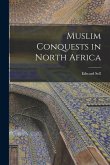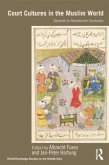Professor Martin considers the social and political aspects of the revival of the Muslim brotherhoods, or sufi.
The mystical and hierarchically organized brotherhoods, the sufi, were first formed in the twelfth century in Iraq, Iran, central Asia, and North Africa. These brotherhoods drew their members from all kinship groups and all classes and professions. By the end of the eighteenth century, however, the African orders were faced, as was the Muslim world in general, with the steady growth of European imperialism in the Near East, dramatically symbolized by the Napoleonic invasion of Egypt. The sufi's fear that their world was endangered combined at this point with the evident political and military weakness of the Ottoman Turks and with a pervasive and general sense of cultural decline to bring about a religious revival under the aegis of the Muslim brotherhoods. This revival has as its main goal the defence of Islam, and through it the sufi orders acquired great, and indeed unprecedented, political and social influence. Professor Martin considers the social and the political aspects of this revival. He focuses on eight sufi brotherhoods and their leaders; five moderates who taught mysticism, carried on jihads, or instituted social reforms; and one conservative sufi leader very little affected by the changing world of the nineteenth century. The book should appeal to all readers interested in African, Islamic, and Middle Eastern history, and to those anthropologists, sociologists, and historians interested in religion.
Table of content:
Preface; Abbreviations; Introduction; 1. Usman dan Fodio and the Fulani Jihad in Northern Nigeria; 2. Oppostion to French colonialism in Algeria: 'Abd as-Qadir, his predecessors and rivals; 3. Al-Hajj 'Umar Tal and his Jihad in Guinea, Senegal, and Mali; 4. The Sanusi brotherhood in Libya and the Sahara; 5. Ma' as-'Aynayn al-Qulqami, Mauritanian mystic and politician; 6. The Qadiri and Shadili brotherhoods in East Africa, 1880-1910; 7. Sayyid Muhammad 'Abdallah Hasan of Somalia; Notes; bibliography; Glossary; Index.
The mystical and hierarchically organized brotherhoods, the sufi, were first formed in the twelfth century in Iraq, Iran, central Asia, and North Africa. These brotherhoods drew their members from all kinship groups and all classes and professions. By the end of the eighteenth century, however, the African orders were faced, as was the Muslim world in general, with the steady growth of European imperialism in the Near East, dramatically symbolized by the Napoleonic invasion of Egypt. The sufi's fear that their world was endangered combined at this point with the evident political and military weakness of the Ottoman Turks and with a pervasive and general sense of cultural decline to bring about a religious revival under the aegis of the Muslim brotherhoods. This revival has as its main goal the defence of Islam, and through it the sufi orders acquired great, and indeed unprecedented, political and social influence. Professor Martin considers the social and the political aspects of this revival. He focuses on eight sufi brotherhoods and their leaders; five moderates who taught mysticism, carried on jihads, or instituted social reforms; and one conservative sufi leader very little affected by the changing world of the nineteenth century. The book should appeal to all readers interested in African, Islamic, and Middle Eastern history, and to those anthropologists, sociologists, and historians interested in religion.
Table of content:
Preface; Abbreviations; Introduction; 1. Usman dan Fodio and the Fulani Jihad in Northern Nigeria; 2. Oppostion to French colonialism in Algeria: 'Abd as-Qadir, his predecessors and rivals; 3. Al-Hajj 'Umar Tal and his Jihad in Guinea, Senegal, and Mali; 4. The Sanusi brotherhood in Libya and the Sahara; 5. Ma' as-'Aynayn al-Qulqami, Mauritanian mystic and politician; 6. The Qadiri and Shadili brotherhoods in East Africa, 1880-1910; 7. Sayyid Muhammad 'Abdallah Hasan of Somalia; Notes; bibliography; Glossary; Index.








